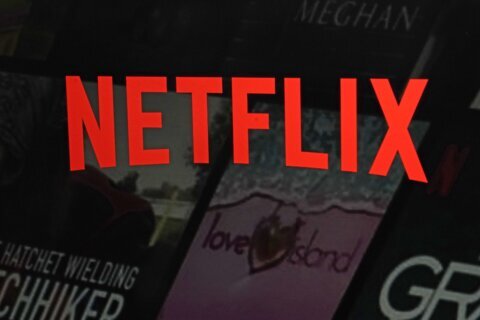NEW YORK (AP) — Early this year, with the S&P 500 near its all-time high, famed investor Jeremy Grantham warned that stocks were in a “super bubble.” Since then, their prices have fallen about 20%, and Grantham says they can still drop more.
Grantham has correctly predicted the bursting of some of the financial world’s most spectacular bubbles, starting with Japanese stocks and real estate in the late 1980s and running through the U.S. housing market before the 2008 financial crisis. The co-founder of the GMO investment firm began warning of potential excess in U.S. stocks in the summer of 2020, when Wall Street was roaring back from its coronavirus crash.
Grantham’s critics say he’s always bearish and gets lucky when the pendulum finally swings the other way. But he’s also been optimistic about markets in the past, including in early 2009, when stocks began to recover from the financial crisis.
He spoke recently with The Associated Press about his “super bubble” call. The conversation has been edited for length and clarity.
Q: People are hurting, even those who invested in a mix of stocks and bonds instead of rolling the dice on just a few high-risk stocks. Were they wrong to think they were doing the right thing?
A: In the long, long run, diversification and keeping the costs down with index funds and so on is the best you can do.
Eighty percent of the time, the market is pretty sensible and related to the reality of profits and, loosely speaking, the economy. About 15% of the time — quite a lot — it gets carried away on the upside and starts to price things based on wishful thinking and because they’re going up. That kind of super bull market thinking carries prices way over reality.
And then about 5% of the time, they get carried away on the downside. It gets so painful people don’t care anymore, and they don’t want to see another stock as long as they live. It happened in the 1930s, a chunk of the 1970s, a bit in 2002 and 2008 and 2009. And maybe it will happen sooner or later in this cycle.
Q: You said early this year that we’re in a “super-bubble.” Why?
A: Because we have been through one of the great speculative periods. Following the stimulus from COVID and the ultralow rates and the accommodation from the Federal Reserve, they all got together and multiplied the effect and created a perfect environment for speculating.
And people were at home, bored out of their minds and getting a check from the government, so why not speculate? They found on the web many ways of doing it, superficially cheaply, but that kind of investing has always turned out to be for most people incredibly expensive. In the end, the money tends to transfer from the amateurs to the professionals.
Q: How big was the bubble?
A: It started off as a fairly straightforward U.S.-based bubble and looked like a dead ringer for the 2000 tech bubble. And it went even higher on most of the measures you could apply.
If you buy into those extravagantly overpriced markets, you usually face quite a long time — 10 years — where you don’t make any money.
Q: Do you think we’ll have to wait 10 years this time around?
A: Each one is different. It all depends on what the government does. It all depends on what the economy does. It’s all based on a thousand interactions, which are in a sense impossible to know.
I managed to clip off one of the more knowable parts of the game, and that is the extravagant euphoria. You can measure euphoria 100 different ways. And this is pretty easy. You can see that things were happening in a much more extravagant and speculative way than they had happened basically forever.
Q: Now that the S&P 500 is down about 20%, are we close to the bottom?
A: It’s likely that there will be considerably more pain before this is finished. This can be quick, like six months. Or it can be drawn out like in 2000, which took almost three years. You can’t really know if it’s going to be quick or long.
The only thing that is predictable is where you get these moments of complete euphoria where everyone is ecstatic, that situation will break and be followed by more ordinary times.
Q: How notable is it that all of the drop for stocks has so far been because of rising interest rates? If forecasts for profits come down, which they’ve yet to do, more drops are on the way, right?
A: The problem is we started with the highest profit margins in history. Whenever anything is as good as it’s ever been, bad things could easily happen.
Of course earnings will now come down. As you said, the big decline so far has been a partial adjustment to valuations. Now the big second shoe falls where earnings decline. And it’s easier to decline from an all-time peak than from any other level.
You may get a reprieve in the middle where people will think the Federal Reserve will start to cut rates again, and you might get a decent recovery for a while, And then the second shoe hits.
Q: What could it look like before that second shoe hits?
A: Great bear markets are famous for splendid rallies, which tend to be quicker and more impressive than any other rally. They don’t tend to last more than a couple weeks, but they are pretty sensational.
We had one in 1929 that rallied something like 45%. You have to know that they are possible.
Q: Are you still thinking the S&P 500 could fall to 2,400 — a 36% drop from Wednesday’s close of roughly 3,800?
A: That’s an old target. What’s fair value for the S&P 500 a year from now? It’s going to be pretty close to 3,000. There is absolutely nothing to stop the market from going below fair value. It’s certainly entitled to spend several months below 3,000.
Q: Who’s the biggest loser in this bubble popping? Current retirees seeing their nest eggs drop? Or younger people seeing a third bubble pop in their prime working years?
A: It’s the 45 year olds. Current retirees, let’s face it, have really benefited from Social Security. We were paid what we were owed.
If you’re in the middle of your career, you have a hard time. If you have another 30 years, you should welcome lower prices because the compounding effect will be greater than the pain on your portfolio. And maybe a lot bigger. The younger you are, the more you should welcome a market decline.
Copyright © 2024 The Associated Press. All rights reserved. This material may not be published, broadcast, written or redistributed.







